658 episodes
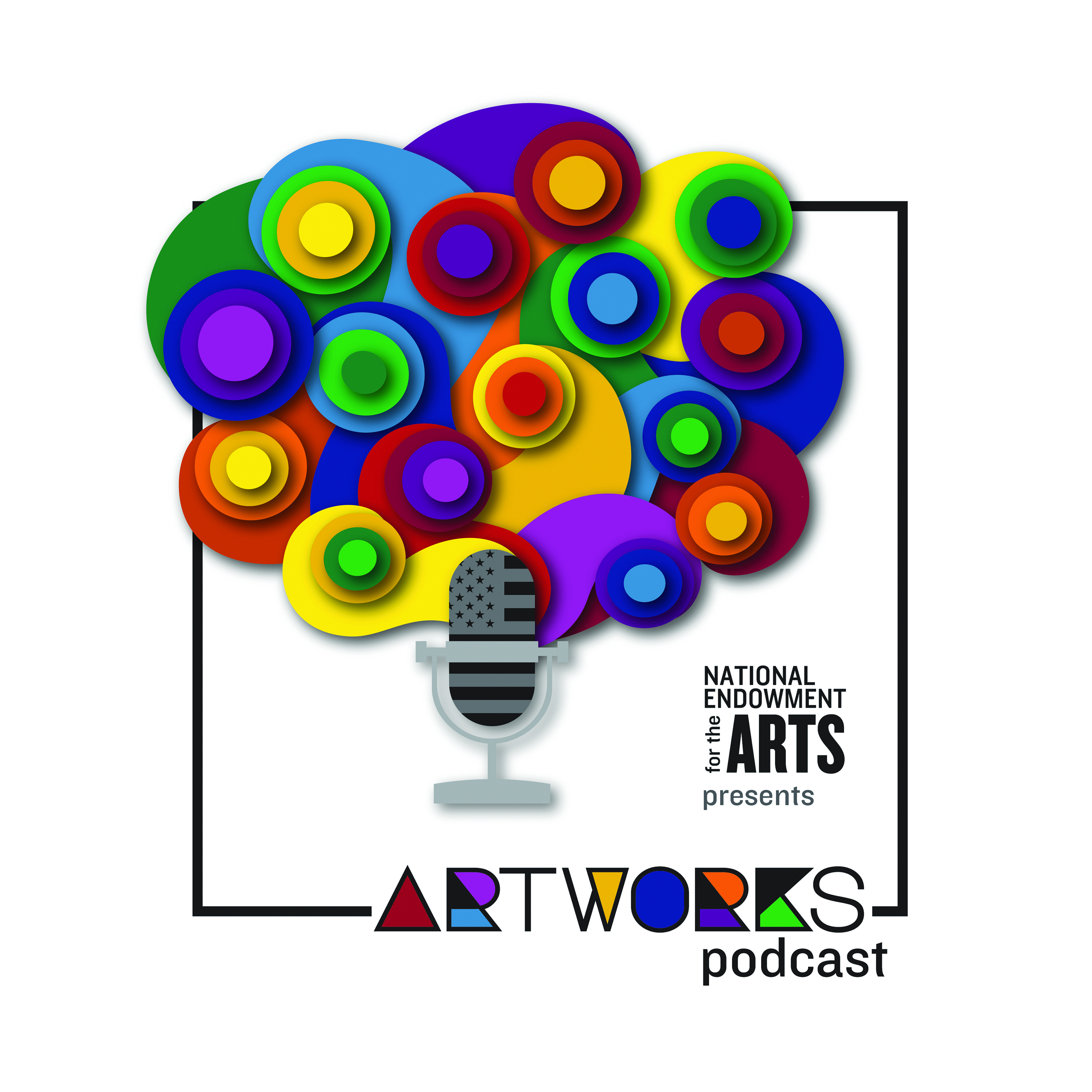

In this special edition of , Chair of the National Endowment for the Arts https://www.arts.gov/ Dr. Maria Rosario Jackson and U.S. Census Bureau https://www.census.gov/ Director Robert Santos have a far-ranging discussion that explores the intersection of arts, culture, and statistical science. Moderated by the NEA’s Director of Research and Analysis Sunil Iyengar, the two agency heads begin their conversation by mapping their journeys to the crossroads of arts and statistical science, both noting that these fields enhance each other. Chair Jackson draws from her extensive background to highlight how robust data, including Census information, serves as a critical tool for fostering meaningful dialogue and shaping community-centric policies, while Director Santos shares his personal journey through photography, emphasizing how an artful life can fuel creativity and propel scientific advancement. They explore the power of incorporating diverse cultural insights into community studies to better understand more diverse and inclusive societal landscapes. They talk about how artists can act as trusted conduits for authentic data collection and community engagement. Director Santos and Chair Jackson champion the idea of embedding artists within federal agencies, illustrating how artistic creativity can invigorate public service and communication strategies. Finally, they discuss the vast potential for their agencies to collaborate further, harnessing the arts to deepen the impact of statistical data on public understanding and policy-making. The summit held at the Arts Endowment at the end of January was “Healing, Bridging, Thriving: Arts and Culture in Our Communities,”. https://www.arts.gov/impact/convenings/healing-bridging-thriving-summit


In this podcast, Amina Claudine Myers https://www.arts.gov/honors/jazz/amina-claudine-myers discusses her journey from the gospel choirs of Arkansas to becoming a 2024 NEA Jazz Master https://www.arts.gov/honors/jazz, highlighting her significant contributions to jazz, gospel, and blues. We discuss her early life in Blackwell, Arkansas, and Dallas, Texas, sharing stories of how family and church planted the seeds of her future in music and her transition from gospel music to discovering jazz and blues in college, detailing her growth as a musician and composer. She reflects on her time in Chicago and her involvement with the Association for the Advancement of Creative Musicians (AACM https://www.aacmchicago.org/), emphasizing the impact this had on her musical direction and compositions. Myers describes her move to New York, the challenges she there, and how she found her footing through innovative performances and compositions. She discusses how she integrates jazz, gospel, and blues into her music, creating a unique sound that speaks to her diverse influences and experiences and her efforts to preserve the legacy of gospel music with Generation 4. And finally Myers shares her thoughts on being named an NEA Jazz Master.* *The Arts Endowment in collaboration with the Kennedy Center will celebrate the 2024 NEA Jazz Masters https://www.arts.gov/honors/jazz with a free tribute concert on Saturday, April 13 at 7:30 pm. The concert is free and open to the public. You can get ticket details at Kennedy-Center.org. https://www.kennedy-center.org/ And if you can’t make it to DC, don’t despair, the concert is available through a live webcast and radio broadcast at arts.gov https://www.arts.gov/.


Co-founder Kirsten Cappy introduces us to I'm Your Neighbor Books https://imyourneighborbooks.org/--which aims to build communities where immigrants are welcomed and feel a sense of belonging by sharing diverse immigration stories in children’s literature-- and explains the collaborative roots of the organization among leaders from immigrant communities, authors, illustrators, educators, and librarians. She discusses The Welcoming Library https://imyourneighborbooks.org/welcoming-library/ project and how this traveling collection of children's books serves to introduce readers to the vast diversity of immigrant experiences and fosters dialogue within communities. She describes the careful curation process for the books included in the Welcoming Library, and shares how they work with authors, illustrators, and community members to create engaging reading materials and discussion questions that accompany the books. And we talk about the expansion of I'm Your Neighbor Books from its origins in Portland, Maine, to states across the country. Kirsten also reflects on the universal importance of storytelling in building communities and the unique ability of children's literature to serve as a bridge between cultures and generations, inspiring empathy and understanding in our communities. BOOKS MENTIONED: Dreamers by Yuyi Morales In My Mosque by Emma Yuksel and illustrated by Hatim Ali I'm an American by Darshana Kiani, and illustrated by Laura Freeman. Wherever I Go by Melissa B Kruger, and illustrated by Isobel Lundie Green Card Voices Bilingual Graphic Novel Flip Books https://imyourneighborbooks.org/book/voice-for-refuge-2/ https://imyourneighborbooks.org/book/belonging-in-america-and-mexico/


2020 NEA Literature Fellow Danielle Evans https://daniellevevans.com/ is author of two collections of stories and , published ten years apart and to great acclaim. Today, we’re revisiting my 2021 interview with Danielle. In this podcast, we explore her intricate narratives that weave through the themes of history, race, and grief. Danielle shares her approach to writing, the importance of allowing stories to develop organically, and her commitment to fostering depth and cohesion in her collections. She discusses the recurring motifs in her work, including the impact of history and memory on identity, the complexities of grief, and the nuances of racial and societal dynamics. We discuss *The Office of Historical Corrections *and the titular novella which introduces an imaginative agency dedicated to correcting historical inaccuracies. Evans explains the genesis of this idea and its reflection on our contemporary struggles with truth and reconciliation. She reflects on the shifts in the publishing industry regarding diversity and representation, acknowledging progress while also pointing to the ongoing challenges in creating equitable spaces for diverse voices. And finally, Danielle shares how the NEA Literature Fellowship has supported her creative process, allowing her to research and develop her forthcoming work.
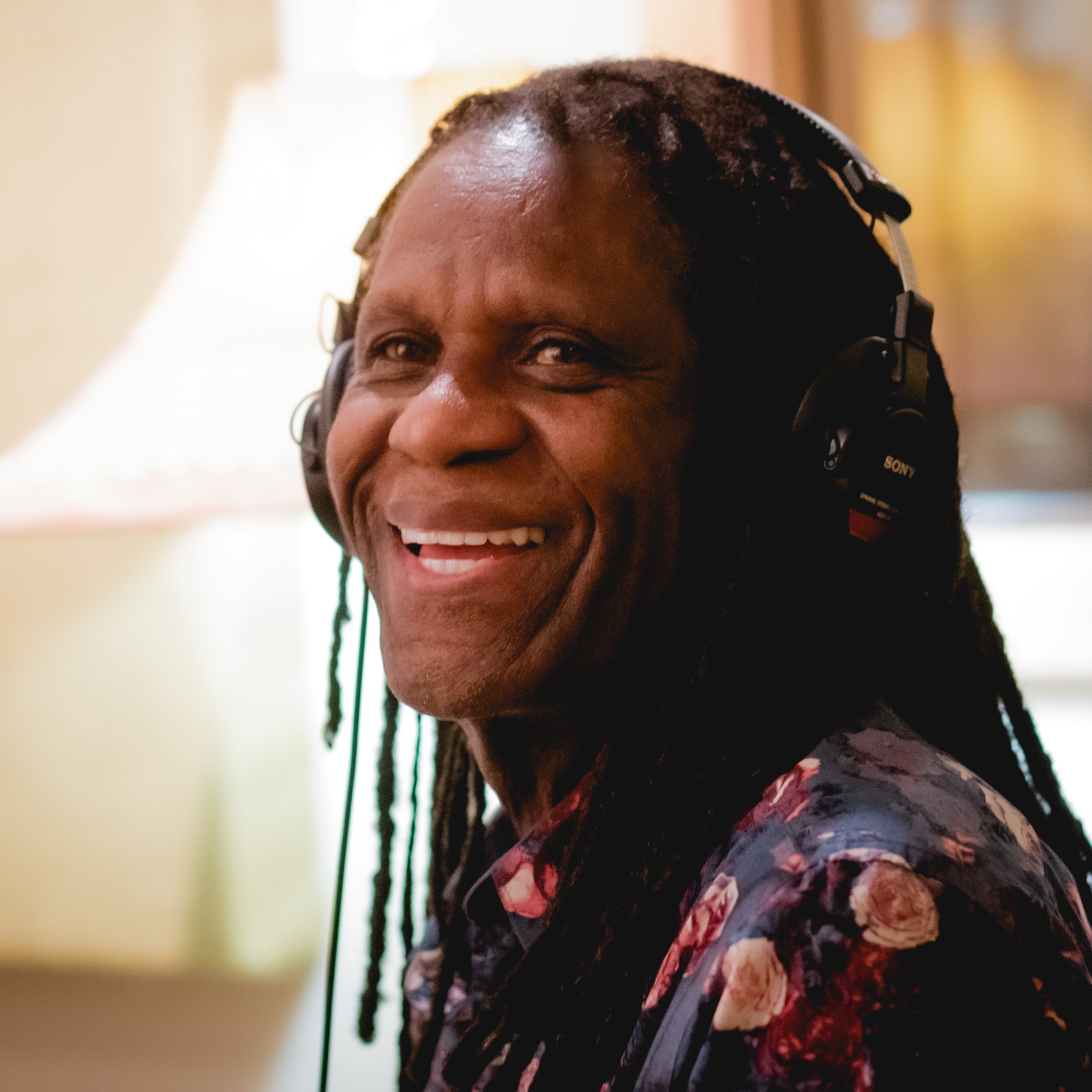

We’re revisiting my conversation with the 2021 National Heritage Fellow, Reginald “Reggio The Hoofer” McLaughlin, https://www.arts.gov/honors/heritage/reginald-reggio-hoofer-mclaughlin a master tap dancer whose feet tell stories of tradition, perseverance, and cultural heritage. In this podcast, Reggio discusses his childhood love for tap dancing sparked at community centers in Chicago, his transition from a successful career as an R&B bassist to a full-time tap dancer (and how this musical foundation influenced his tap dancing career) and his experiences busking in Chicago’s subways. He highlights the invaluable lessons and traditions passed down by his mentors, Jimmy Payne https://memory.loc.gov/diglib/ihas/loc.music.tdabio.148/ and Ernest “Brownie” Brown https://memory.loc.gov/diglib/ihas/loc.music.tdabio.31/, and their influence on his style and teaching. Reggio shares his passion for teaching at the Old Town School of Folk Music https://www.oldtownschool.org/, emphasizing the importance of connecting students with the history and joy of tap. He also recounts performing on stages around the world as part of Old Town’s international program and audience’s embrace of this American art form. He gives an inside look into the creation of "The Nut Tapper," showcasing how he blends tap with diverse cultural dance forms to celebrate the universality of dance. And reflecting on his National Heritage Fellow award https://www.arts.gov/honors/heritage, Reggio discusses the importance of recognition for artists dedicated to preserving cultural traditions.
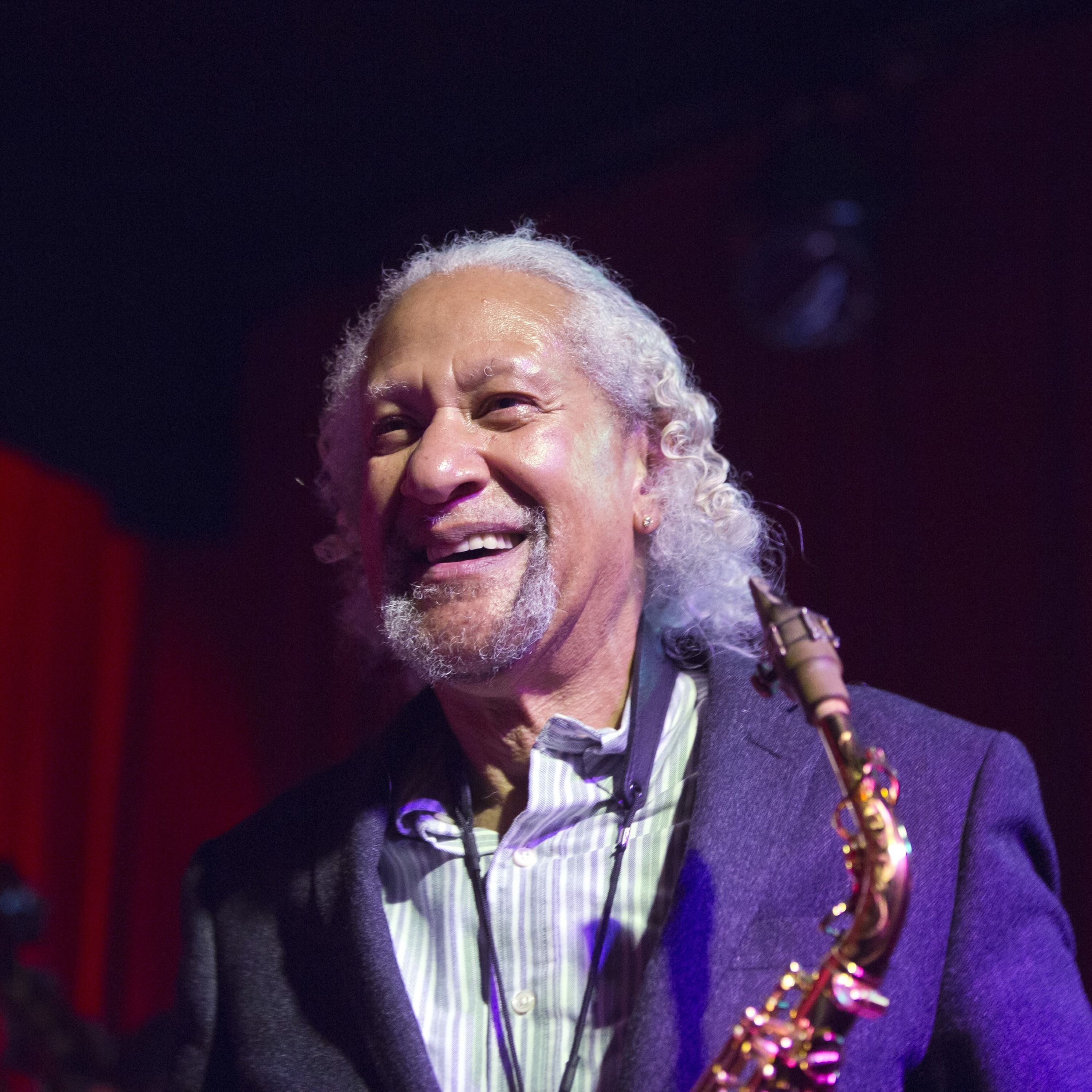

In this tuneful podcast, 2024 NEA Jazz Master Saxophonist Gary Bartz https://www.arts.gov/honors/jazz/gary-bartz talks about his life and career, touching on his roots, influences, collaborations, and the philosophical underpinnings that have guided his artistic journey. Born in Baltimore in 1940, Gary's musical journey began in a segregated America, where he found music to be a universal language that could transcend societal barriers. He discusses his early encounters with music which were deeply influenced by his family's musical gatherings and his exposure to the records of Charlie Parker, which ignited his passion for the saxophone at the age of six. He talks about moving to New York City in 1958, immersing himself in the city's vibrant jazz scene, his time at Juilliard and the thrill of playing alongside legends like Max Roach https://www.arts.gov/honors/jazz/max-roach (NEA Jazz Master, 1984), Charles Mingus, https://www.arts.gov/honors/jazz/sue-mingus Art Blakey https://www.arts.gov/honors/jazz/art-blakey (NEA Jazz Master, 1988), Miles Davis https://www.arts.gov/honors/jazz/miles-davis(NEA Jazz Master, 1984) and McCoy Tyner https://www.arts.gov/honors/jazz/mccoy-tyner (NEA Jazz Master, 2002), highlighting the impact of these experiences on his musical direction. He details his approach to music, emphasizing the importance of listening and creativity and expressing his disdain for the term "jazz," preferring to see music as a boundless form of expression. Gary also discusses his work with younger musicians and bands like his collaborations with Ali Shaheed Muhammad and Adrian Younge for their Jazz Is Dead https://www.jazzisdead.com/ label and the spiritual jazz band Maisha https://www.nightdreamer.co.uk/gary-bartz-maisha, emphasizing the importance of intergenerational dialogue in music. With over two decades of teaching at Oberlin https://www.oberlin.edu/conservatory, Gary talks about his approach to education which focuses first on the importance of listening—a skill he deems crucial for any musician. He shares his feelings on being named an NEA Jazz Master https://www.arts.gov/honors/jazz, acknowledging it as a significant honor that places him among the heroes who shaped his musical path. Note: On Saturday, April 13, 2024, the National Endowment for the Arts, in collaboration with the John F. Kennedy Center for the Performing Arts https://www.kennedy-center.org/, will celebrate the 2024 honorees with a tribute concert. Keep checking [arts.gov](arts.gov) for details.


In honor of Black History month, we’re revisiting this 2011 conversation with author and 2015 National Humanities Medalist https://www.neh.gov/about/awards/national-humanities-medals/isabel-wilkerson Isabel Wilkerson https://www.isabelwilkerson.com/In this tuneful podcast, Wilkerson discusses her acclaimed book "The Warmth of Other Suns," http://warmth.isabelwilkerson.com/exploring the profound impact of the Great Migration on American culture. This migration saw six million African Americans relocate from the rural South to the urban North from post-WWI through the 1960s, drastically transforming the country’s demographic landscape and cultural output. Wilkerson describes it as a defection from the oppressive Jim Crow laws of the South to the more welcoming, yet challenging environments of the North. This movement was not merely a migration but a quest for political asylum; people were seeking opportunities and freedoms that were systematically denied in the South. As Wilkerson discusses, one result of the Migration was a profound merging of cultures, impacting every form of American art - literature, music, theater, and visual arts. Figures like Toni Morrison, Richard Wright, and artists like Romare Bearden and Jacob Lawrence were deeply influenced by their migration experiences, fundamentally altering American culture. She points out that the Great Migration had a monumental impact on music, bringing Southern blues, jazz, gospel, and later, Motown sounds to a national audience. Icons like BB King, Muddy Waters, Louis Armstrong, and companies like Motown Records owe their success and influence to this movement, which also facilitated a cross-cultural exchange that reverberated globally. She argues that music at times served as a bridge, bringing together segregated communities, Black and white, urban and rural, and introducing diverse audiences to the rich and varied cultural expressions of African Americans. Wilkerson also shares her personal connection to the Great Migration, being the daughter of migrants herself. She reflects on how this history shaped her identity, the broader narrative of African Americans in the 20th century, and the nation's art, music, and societal structures.
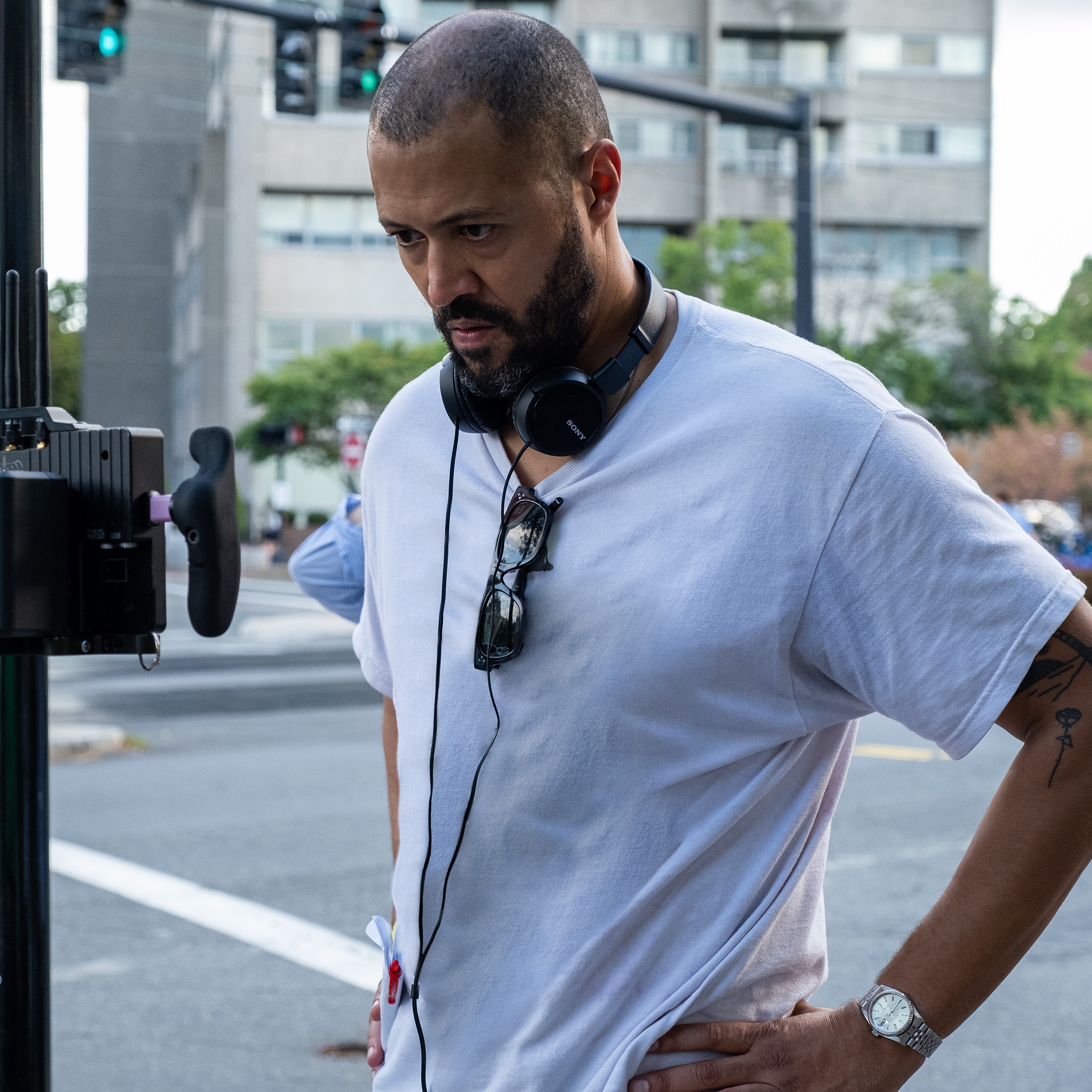

Screenwriter and Director Cord Jefferson discusses his critically acclaimed film, “American Fiction” which is a satirical exploration of popular culture’s often narrow and limiting representation of Black people. We catch up with director/writer Cord Jefferson https://en.wikipedia.org/wiki/Cord_Jefferson whose film ”American Fiction” https://www.mgm.com/movies/american-fiction has been nominated for five academy awards (Best Picture, Best adapted screenplay (Jefferson), best actor (Jeffrey Wright), best supporting actor (Sterling K. Brown and best score (Laura Karpman). Not bad for the first-time director—albeit one with a rich resume as a Emmy Award winning television writer (think: “The Good Place” and “Watchmen.”*) Jefferson talks about adapting Percival Everett’s https://en.wikipedia.org/wiki/Percival_Everett novel “Erasure,” https://www.graywolfpress.org/books/erasure reflecting on the novel's exploration of stereotypes and limitations placed on Black artists, his own personal experiences which drew him to the project and influenced the adaptation. Jefferson opens up about the difficulty of finding backing for the film, particularly as a first-time director, and the joy of putting together an extraordinary ensemble cast led by Jeffrey Wright https://en.wikipedia.org/wiki/Jeffrey_Wright-- a task made easier by the depth and richness of the characters they were called upon to play. Jefferson discusses his aim to create a film that balances satire without veering into farce, ensuring the story remained grounded and the importance of family themes within the film is highlighted, with Jefferson discussing his decision to keep these elements against suggestions to cut them as a way to enrich the narrative and ground the satire. Jefferson reflects on the success of "American Fiction," the brilliance of the cast, and his interest in continuing to make films, appreciating the collaborative and creative process of film production. Through Jefferson's insights, listeners gain an understanding of the complexities involved in adapting a novel to film, the importance of nuanced storytelling, and the power of representation in film.


Steve Zeitlin, founder and executive director of City Lore https://citylore.org/, and Phyllis Zimmer, founder and president of the Nurse Practitioner Healthcare Foundation https://www.nphealthcarefoundation.org/education/heritage-health/, discuss their joint project "From Heritage to Health" https://citylore.org/special-projects/from-heritage-to-health-toolkit/ (H2H). Funded partly by the National Endowment for the Arts, this initiative aims to integrate storytelling and the arts into healthcare, particularly for a culturally diverse population. Zeitlin and Zimmer talk about the various components of the program: learner-needs assessments, eLearning courses, public and professional presentations, and toolkits focusing on culturally-attuned health care and ways to harness the arts for end-of-life care. They discuss creating the accredited eLearning courses and public toolkits featuring the perspective of artists from many cultures and disciplines on healthcare, wellness, death, and dying. Both Zeitlin and Zimmer emphasize the importance of cultural sensitivity in healthcare, pointing out how stories and arts from various cultures can help healthcare providers understand and treat patients more effectively. They also discuss the development of H2H and their extensive collaboration with artists and healthcare professionals, the reach of the program, and the strong response from healthcare providers. And we conclude with discussions on potential future expansions of the H2H initiative, including exploring cultural practices and rituals around birth and dementia. Overall, Zeitlin and Zimmer underscore the essential role of the arts in both enhancing healthcare practices through cultural awareness and fostering deeper connections between healthcare providers and patients.


In this podcast, folklife presenter, educator, host and producer of “American Routes,, and 2023 National Heritage Fellow https://www.arts.gov/honors/heritage Nick Spitzer discusses his multifaceted career, his upbringing, and his understanding of cultural innovation in America. We talk about his life-long passion for radio and his discovery and embrace of American vernacular culture, his career as folklorist in academia, government, and media, including his NPR https://www.npr.org/ and Smithsonian https://festival.si.edu/ collaborations and “American Routes” http://americanroutes.wwno.org/, Spitzer’s renowned radio program which blends music from many different traditions with cultural storytelling. Spitzer discusses his fieldwork in Louisiana and experiences with Afro-French Creole music, his understanding of cultural dynamism, and his journey through different American regions, absorbing and understanding not just the diversity but the dynamic and innovative interactions among American cultures. He also reflected upon the significance of receiving the Bess Lomax Hawes National Heritage Fellowship, the privilege and responsibility of working in American vernacular culture, and the future of “American Routes” and Spitzer’s commitment to its continued contributions to cultural understanding.


In today’s podcast, filmmakers Sam Pollard https://www.arts.gov/stories/podcast/sam-pollard and Ben Shapiro discuss their film “Max Roach: The Drum Also Waltzes https://www.maxroachfilm.com/.” In our conversation, they place Max Roach https://www.arts.gov/honors/jazz/max-roach within the context of American culture, emphasizing his legendary status as a drummer, a composer, and a significant figure in Black consciousness and activism. Sam Pollard shares his 40 year journey in making this documentary, while Ben Shapiro talks about his own connection to Roach reaching back to a radio documentary. They discuss their coming together and collaboration in making the film, highlighting their complementary skills. We talk about Roach's musical evolution from a seminal drummer in the bebop era to a soloist and a leader in exploring new dimensions in percussion, the profound impact of Roach's collaboration with Clifford Brown, especially in terms of musical innovation, the toll Brown’s early tragic death had on Max, the film's focus on Roach's "Freedom Now Suite" and its significance in both the music world and social movements, including its impact on the civil rights movement in the USA and anti-apartheid struggles in South Africa. We discuss Max's marriage to Abbey Lincoln, noting her influence on his life and music, and her own significant artistic contributions, how Roach's political activism impacted his music career and his transition into teaching, where he continued to influence younger musicians, emphasizing his continuous evolution as an artist. We also discuss upcoming screenings of the film https://newarkmuseumart.org/event/newark-black-film-festival-presents-max-roach-the-drum-also-waltzes/?date=202401181900 and upcoming events https://www.njpac.org/event/freedom-now-suite-celebrating-max-roachs-centennial/ at NJPAC https://www.njpac.org/ celebrating Max Roach’s centenary. Overall, the interview paints a comprehensive picture of Max Roach's life, his immense contributions to music and social activism, and the journey of creating a documentary that captures his multifaceted legacy.
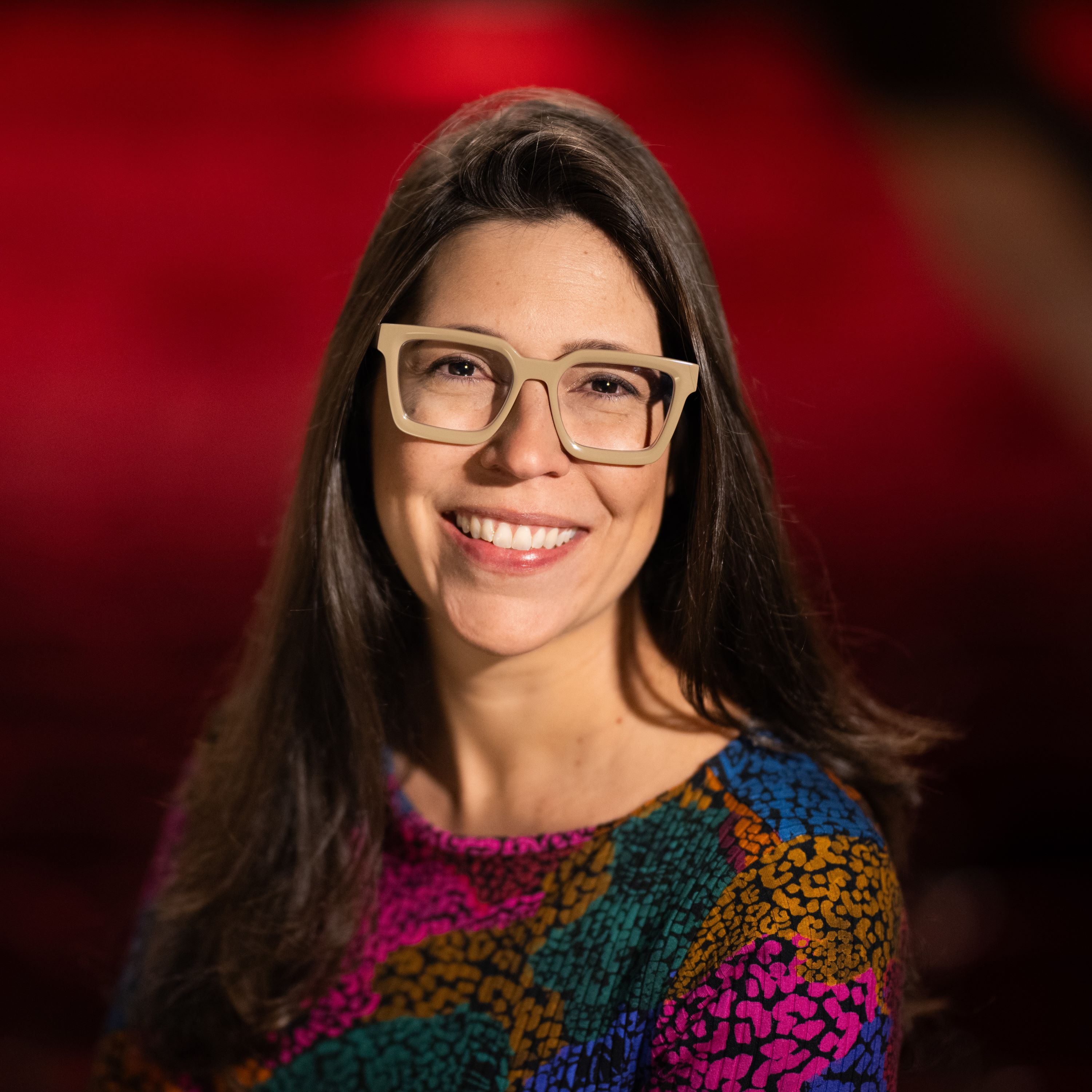

A conversation with Director of Presented Programming at the McCarter Theatre Center Paula Abreu halfway through her first season on the job! Abreu took over from her predecessor Bill Lockwood who ran the program for 60 (yes, 60) years. We discuss the balance between honoring his legacy and introducing her own vision, some history about the McCarter Theatre Center https://www.mccarter.org/, its connection to Princeton University https://www.princeton.edu/, and its unique role as a cultural powerhouse. (The McCarter Theater Center is known not just as one of the country’s leading regional theaters but also as a performing arts center presenting music, dance, spoken word and more) We talk about the process behind planning a season of presented programming, ensuring diversity in art forms, and the representation of different communities, how the two strands of programming at the McCarter coordinate to create a cohesive season, and the importance of partnerships on and off campus in enhancing cultural experiences and creating deeper connections. We also discuss Abreu’s journey from Brazil, experience as an industrial engineer, years of traveling and living around the world, on her masters’ degree in performing arts administration, subsequent work at NYC’s Summer Stage and the Charlie Parker Jazz Festival and how all these diverse experiences inform her approach to programming. She also shares her approach to taking calculated risks in selecting shows and artists and the challenge of planning for both the immediate and future seasons.
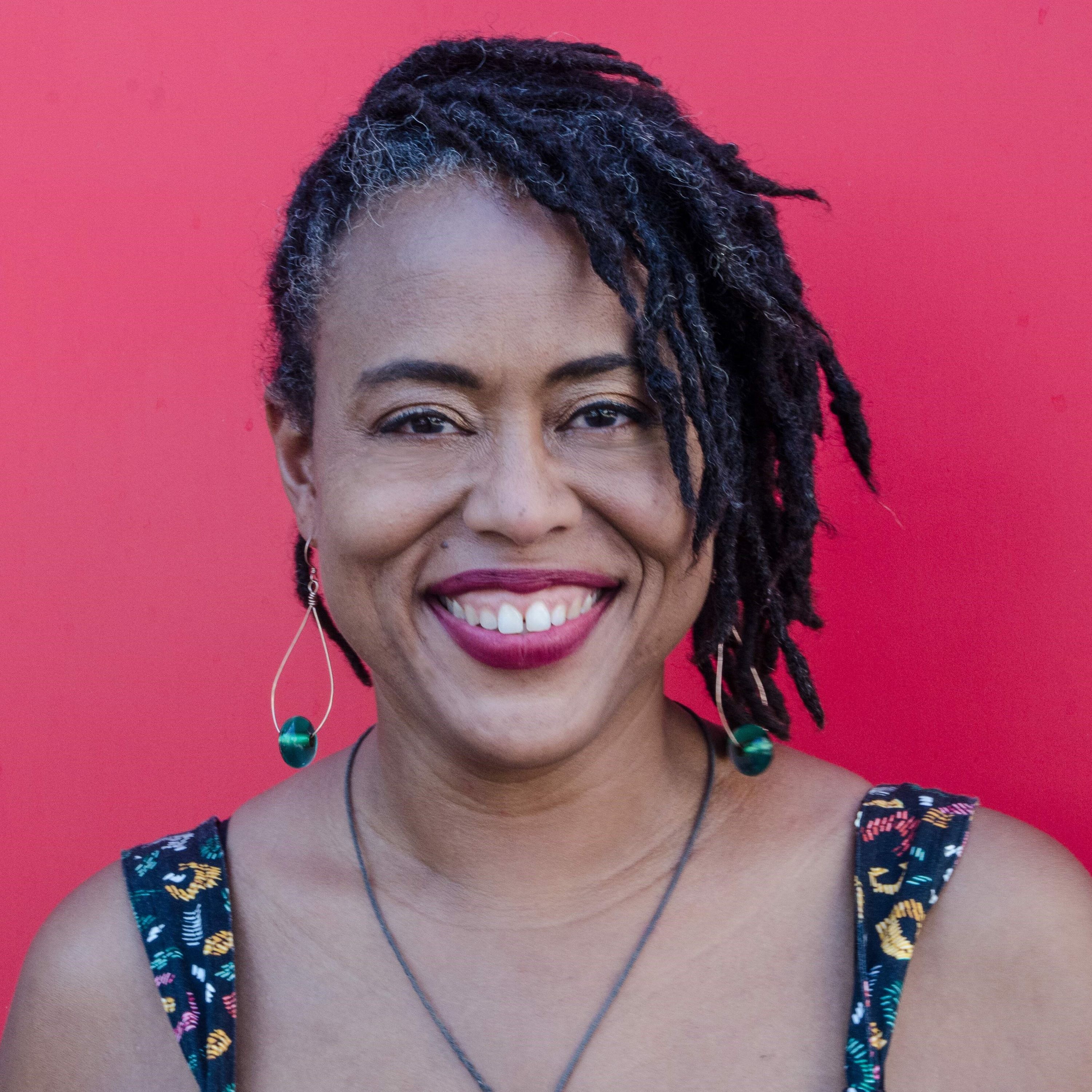

Karen Ann Daniels https://www.folger.edu/about-us/staff-directory/ explores her dual roles at the Folger Shakespeare Library https://www.folger.edu/ as the Director of Programming and Artistic Director at the Folger Theatre https://www.folger.edu/whats-on/events/theater/, and her innovative approach to programming and audience engagement in the evolving landscape of theater post-pandemic. Daniels discusses her arrival at the Folger during a period of significant change, including the pandemic, racial reckoning, and major renovations, and how these challenges presented unique opportunities for outreach and community engagement. We talk about her experiences with New York City's Public Theatre https://publictheater.org/ and her initiatives with San Diego’s The Old Globe https://www.theoldglobe.org/, her philosophy of reaching out to diverse communities and bringing theater to them and her creation of innovative programming at the Folger like The Reading Room Festival https://www.folger.edu/whats-on/the-reading-room-new-play-festival-2024/ and Works in Progress, focusing on community participation and engaging audiences with Shakespeare's work in contemporary contexts. We discuss the recent production of “The Winter’s Tale” and how it aligns with the Folger's vision of transformation and accessibility, how Shakespeare's works can be adapted to reflect diverse cultures and generations, and the importance of expanding perspectives on Shakespeare. And Daniels shares her vision for the future of the Folger, including continued programming diversification, virtual engagements, and community-focused events.
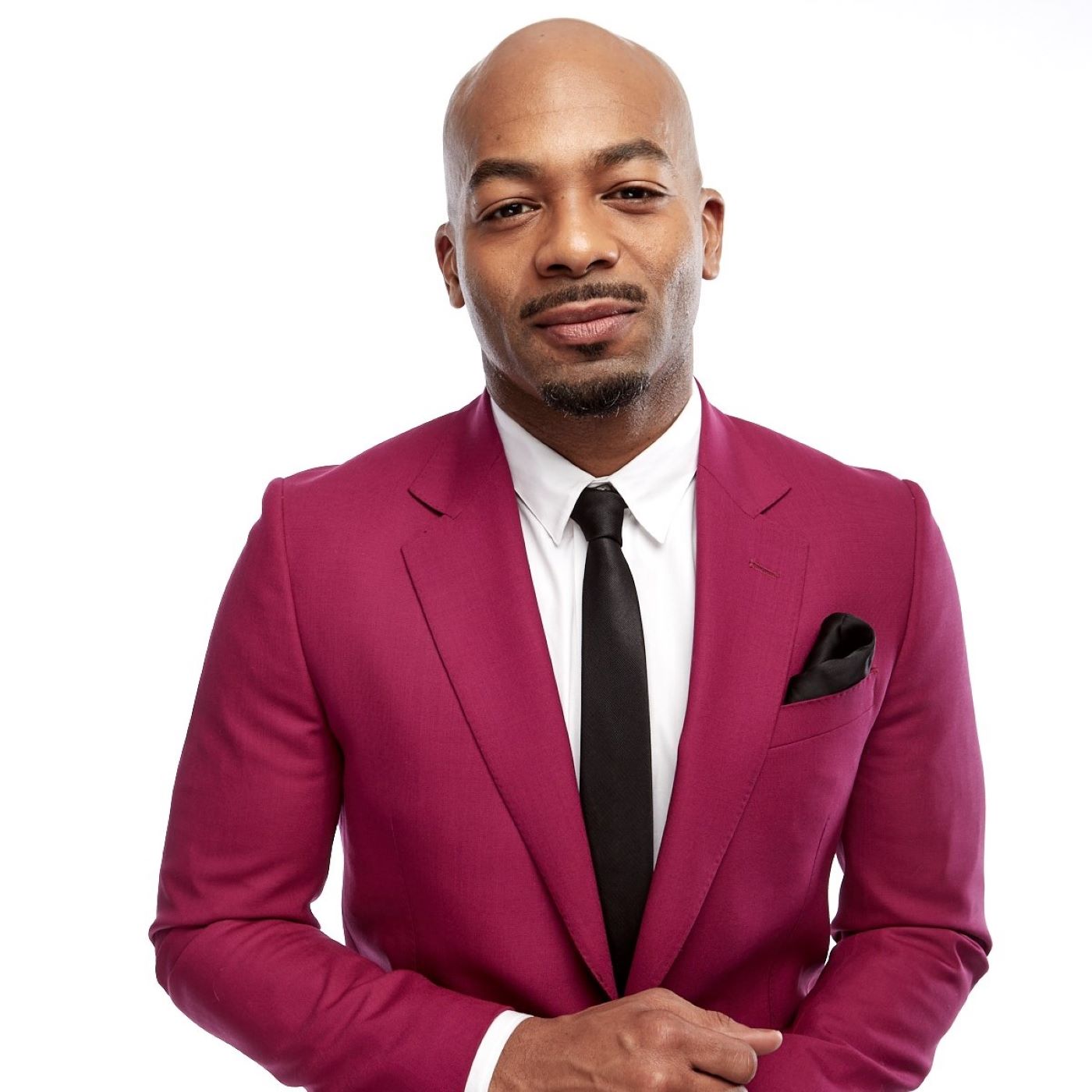

A conversation with singer, actor, and producer Brandon Victor Dixon https://www.brandonvictordixon.com/. We talk about his role in Alicia Keys’s https://aliciakeys.netlify.app/ play “Hell’s Kitchen https://publictheater.org/productions/season/2324/hells-kitchen/” currently at the Public Theater https://publictheater.org/, collaborating with Keys and the other performers in the play, what goes into creating a role in theater, his stepping into the role of Burr in “Hamilton” and the challenges that brought, and playing Judas in “Jesus Christ Superstar” in a live television performance. We also discuss his upcoming benefit concert for the Classical Theater of Harlem https://www.cthnyc.org/ called “Here for the Holidays, his first major role as Simba in the national tour of “The Lion King”—which he calls the biggest challenge of his career, his role as a producer for the Tony-Award winning production of “Hedwig and the Angry Inch,” the importance of arts education to his career, and his work as an advocate with the organization he co-founded the WeAre Foundation https://weare.org/.


In this 2019 podcast, filmmaker Irene Taylor Brodsky https://vermilionpictures.com/ discusses her project "Moonlight Sonata: Deafness in Three Movements," and her commitment to making films accessible to differently-abled audiences. We talk about her first feature documentary, "Hear and Now," which won the Audience Award at Sundance in 2007 and explored her deaf parents’ experiences when they were 65 with cochlear implants and its relationship to her film “Moonlight Sonata," which was partly inspired by her deaf son, Jonas, who was driven to learn to play Beethoven's “Moonlight Sonata”. We discuss the emotional and historical significance of Beethoven’s work, particularly how his deafness influenced his compositions. Irene also recounts the unexpected twists during filming, including her father's development of dementia. And she discusses the Reel Abilities Film Festival https://reelabilities.org/ where her film premiered, her commitment to making her film, as well as others, accessible to the deaf, blind, and differently-abled communities, and her not-for-profit The Treehouse Project https://www.thetreehouseproject.org/ and its Accessibility Lab https://www.thetreehouseproject.org/initiatives which works to elevate deaf and blind audiences’ access to and participation in theatrical independent film.
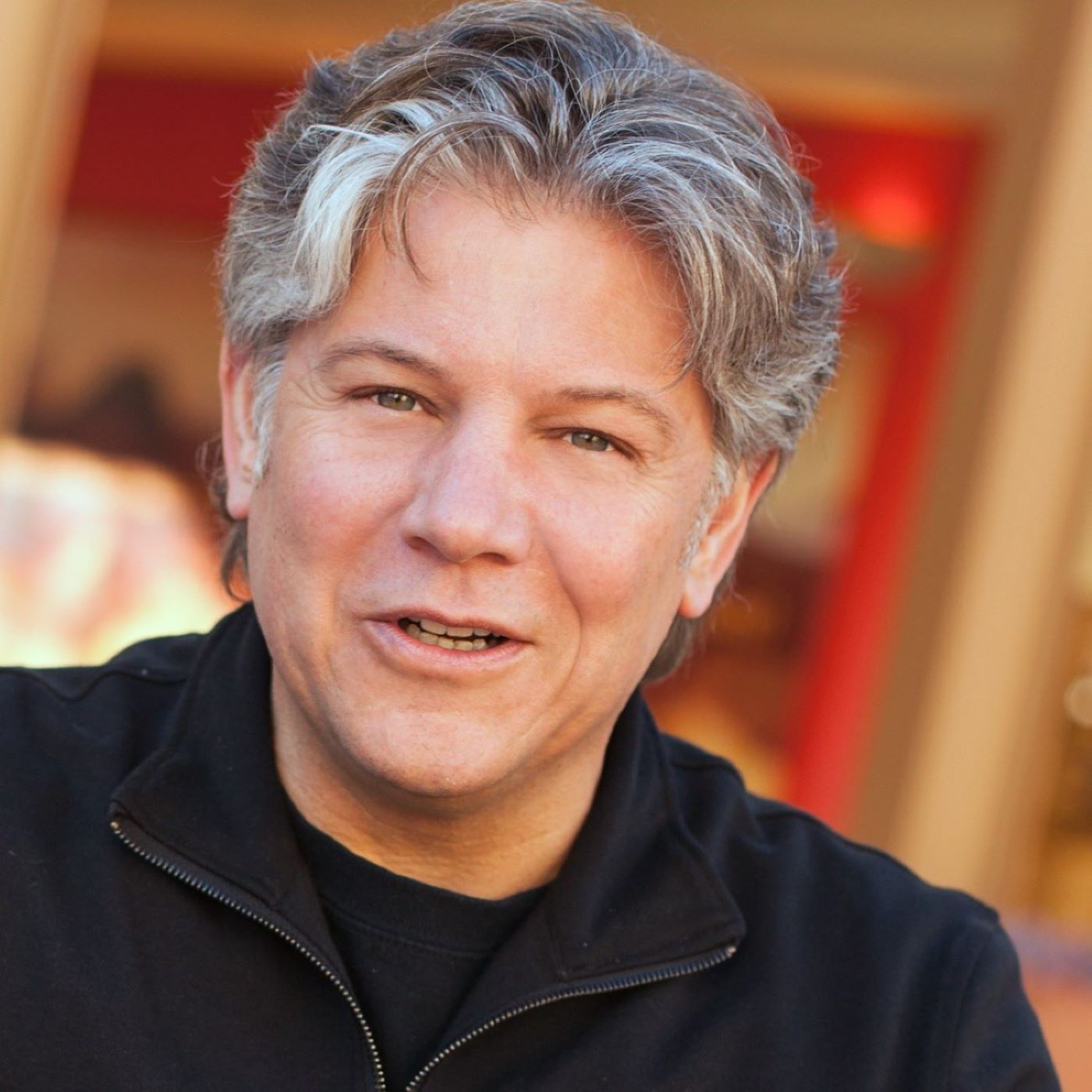

We’re marking the end of Indigenous Peoples Month by revisiting my 2018 interview with Randy Reinholz https://randyreinholz.com/ (Choctaw), the producing artistic director and Founder of Native Voices at the Autry a Los Angeles theater company that produces new work by Indigenous playwrights. For almost 30 years, Native Voices at the Autry https://theautry.org/explore/native-voices has been providing opportunities and support to Native American playwrights…and by extension Native actors, designers, musicians and other theater artists. It is the country’s only Equity theatre company dedicated exclusively to producing new works by Native American, Alaska Native, and First Nations playwrights. Deeply committed to developing as well as producing new work, Native Voices also provides a venue for new plays with festivals and public staged readings as well as retreats and workshops for emerging and established Native playwrights. In this podcast, Randy talks about the unique and changing points of view Native artists bring to the table, the issues facing Indian Country, and the place theater has in telling Native stories.
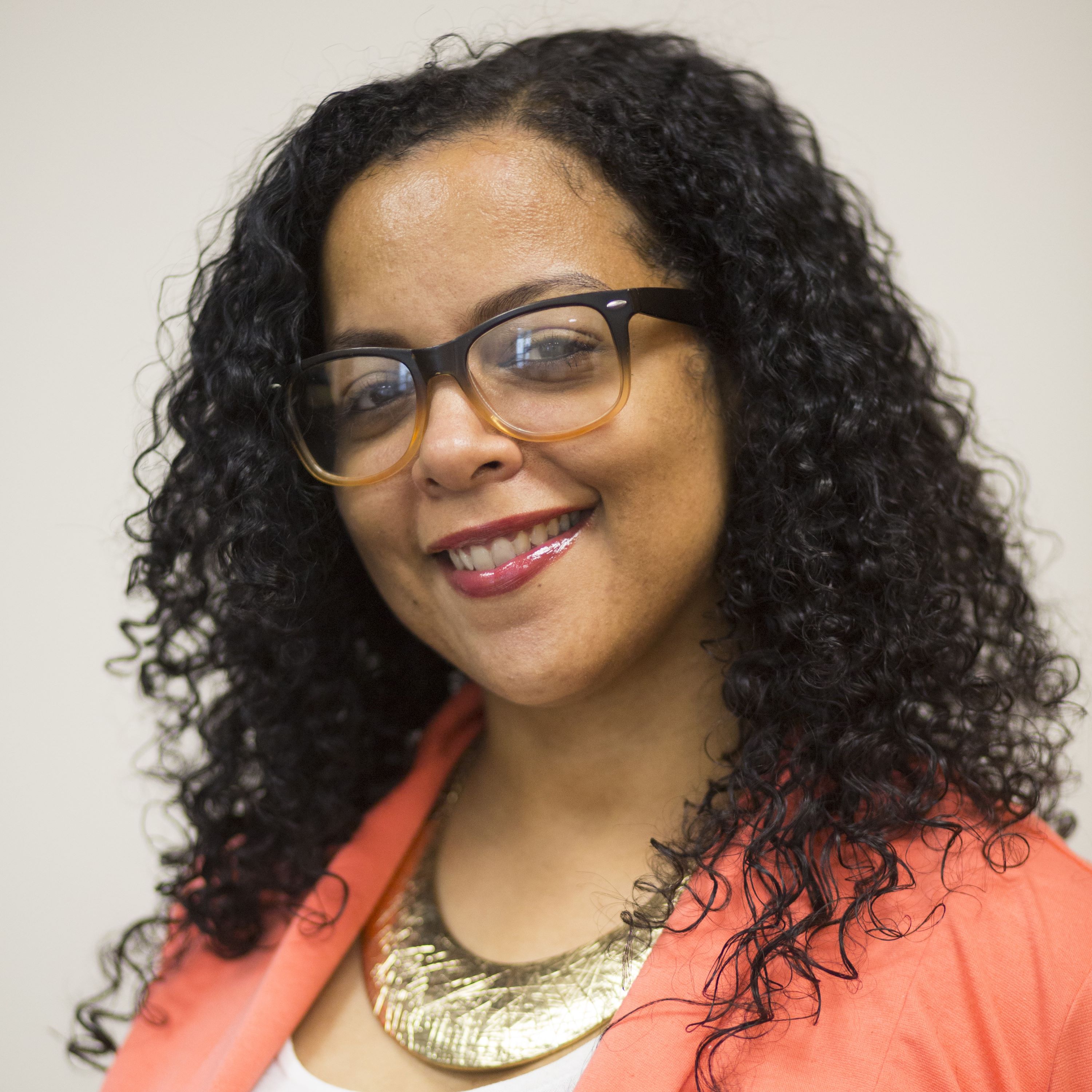

Dr. Zella Palmer https://www.linkedin.com/in/zella-palmer-45370971/ is a professor, food historian, author and filmmaker and serves as the Chair and Director of the Dillard University Ray Charles Program in African American Material Culture https://www.dillard.edu/partner-with-us/research-centers/ray-charles-program-in-african-american-material-culture/ in New Orleans, Louisiana. In this podcast, she discusses the Ray Charles program, the importance of material culture, especially to African Americans and other historically marginalized groups, her commitment to preserving the legacy of African-American and Native American culinary history in New Orleans and the South, and her creation of a multi-disciplinary food studies minor at Dillard. We also discuss the film she directed which underscores the centrality of African Americans to New Orleans’ famed Creole cuisine and her 2019 cookbook, which details not only recipes, but a culinary history of New Orleans and Dillard’s place in that history, her podcast “Culture and Flavor https://heritageradionetwork.org/series/culture-flavor,” and the significance of food studies for students across a wide range of disciplines from history to global politics.
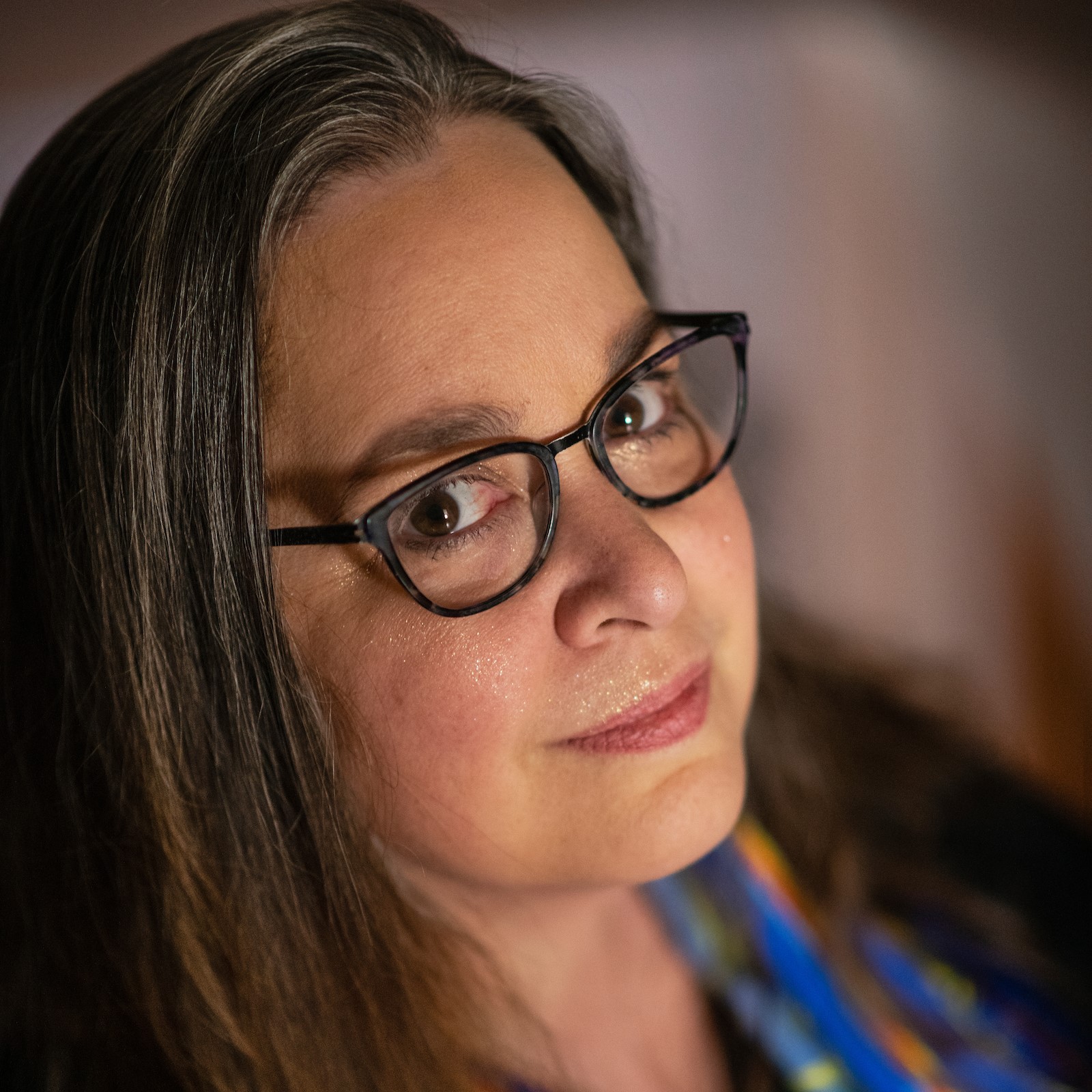

Today, we are celebrating Indigenous Peoples Month with an interview with author Cynthia Leitich Smith https://cynthialeitichsmith.com/. A member of the Muscogee (Creek) nation, Smith is a bestselling, award-winning children’s-YA writer and the author-curator of the Native-centered Heartdrum imprint https://issuu.com/harpercollinschildrensbooks/docs/heartdrumbrochure_final at HarperCollins Children’s Books. She also is the 2024 Southern Mississippi Medallion https://www.usm.edu/childrens-book-festival/index.php Winner and the 2021 NSK Neustadt Laureate https://www.worldliteraturetoday.org/blog/news-and-events/cynthia-leitich-smith-named-winner-2021-nsk-neustadt-prize-childrens-literature and is widely recognized for her fiction for young readers that centers on contemporary Native American characters. In this podcast, we discuss her recent YA novel an "indigenous ghost mystery" that grapples with serious themes of missing Native women and girls while emphasizing the empowerment of young Native voices. She also discusses the importance of including themes such as first love, strong family bonds, and vibrant community ties in her writing to underscore the joy that can be found in the daily lives of Indigenous kids. The conversation takes us through the interconnectedness of characters in Cynthia's Native-centered stories, returning to the beloved Wolf family, first introduced in her 2000 picture book . Cynthia reflects upon the inspiration behind her award-winning book exploring the tensions between artists and their art, speech in its many forms, and the importance of navigating apologies and amends. We discuss her sense of responsibility as a writer for young readers, aiming to provide stories that do no harm and offer empowerment, while still tackling difficult issues. Cynthia shares her journey through the publishing industry's challenges, her strategic pivot to fantasy and gothic genres, and eventual return to contemporary Native American stories. She discusses her role as curator of Heartdrum, a Native imprint at HarperCollins, its goals and continued growth, and finally her vision for the expansion of Native literature across genres and representations.


To mark Veteran’s Day, we’re revisiting our2017 interview with author Sebastian Junger https://www.sebastianjunger.com/ a journalist deeply engaged with war and the people who fight in them. As a contributing editor for Vanity Fair, he’s covered international stories including the war in Afghanistan, a region and subject he’s returned to over the course of his career. In this podcast, Sebastian Junger discusses his book https://www.sebastianjunger.com/tribe-by-sebastian-junger which explores the complexities soldiers can find when they return from war. We talk about his research in anthropology, psychology and history as well as his own observations and experiences in his effort to understand why there are such high numbers of veterans suffering from PTSD. Junger argues there are primal human needs-- for loyalty, a sense of belonging, and a connection to something bigger than ourselves and he discusses how service members often find this connection when they are deployed, and therefore returning home can leave some 21st-century combat veterans with a profound sense of loss. Added to that loss is a society disengaged from the war in which these veterans fought which Junger argues may account for the high-percentage of service members suffering from PTSD. He also discusses ways to address these concerns, the significance of the arts for Veterans and their families in confronting these challenging situations, and the importance of the work being done for veterans and service members through the NEA initiative Creative Forces https://www.arts.gov/initiatives/creative-forces.
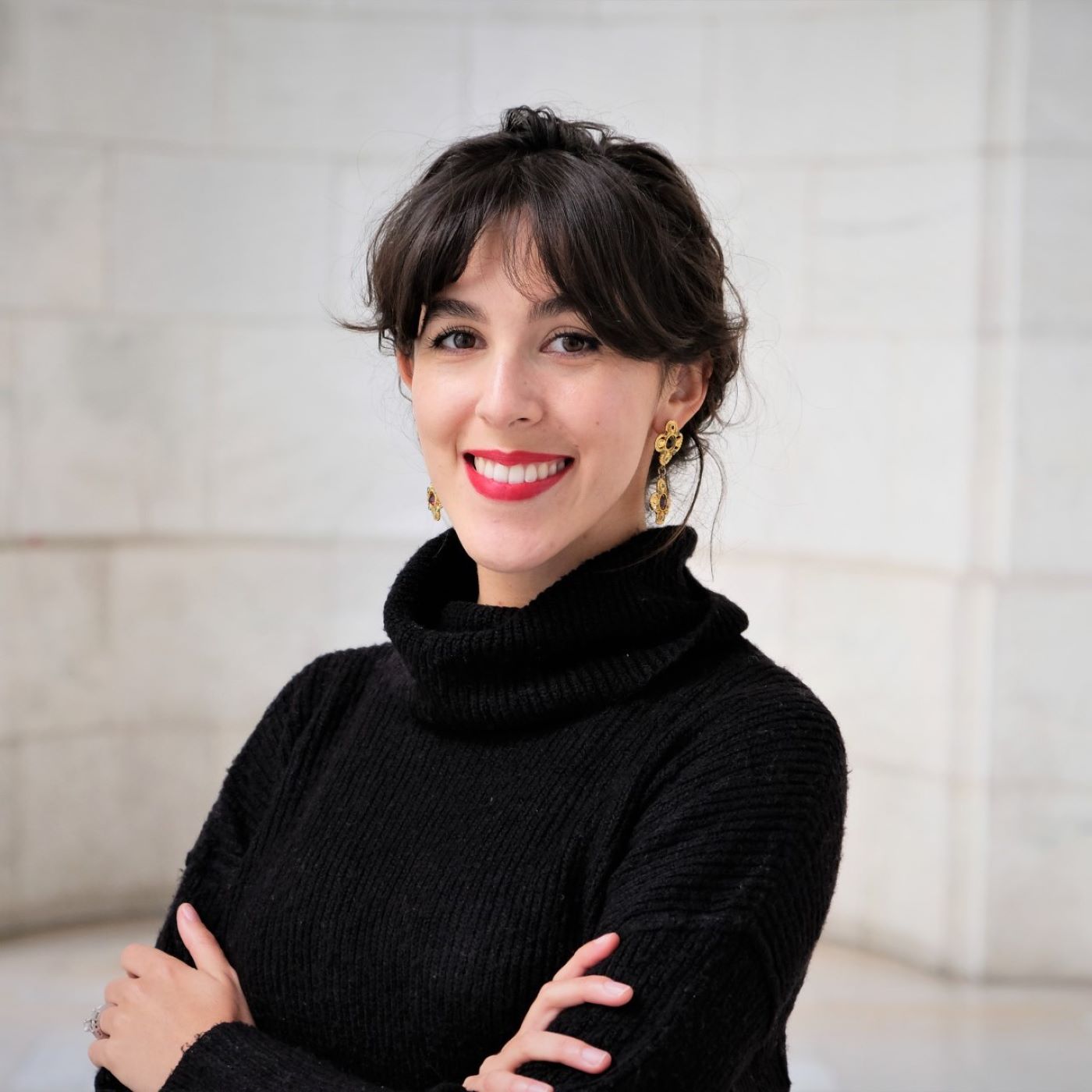

We're marking Halloween and with a conversation with Mexican American author Isabel Cañas https://www.isabelcanas.com/. She employs gothic frameworks and tropes with historical detail in her novels—a combination as terrifying as it is informative. In this podcast, we discuss her books which is frightening haunted house mystery set in Mexico soon after its War of Independence and set in northern Mexico (now south Texas) during the Mexican American war. Cañas discusses the racial and ethnic disparities, the rigid class structures, and the gender dynamics at work in both of these eras and how gothic tropes are fertile ground for these explorations. We also discuss the growth of Mexican gothic fiction more generally and the balancing act required to portray actual historical events and authentic experiences in genres that are deeply imaginative. Cañas also talks about her extensive research into the historical periods in which she sets her novels, the family histories she also drew upon, her own academic background in Medieval Islamic history, and what it was like to write two novels and a dissertation simultaneously.
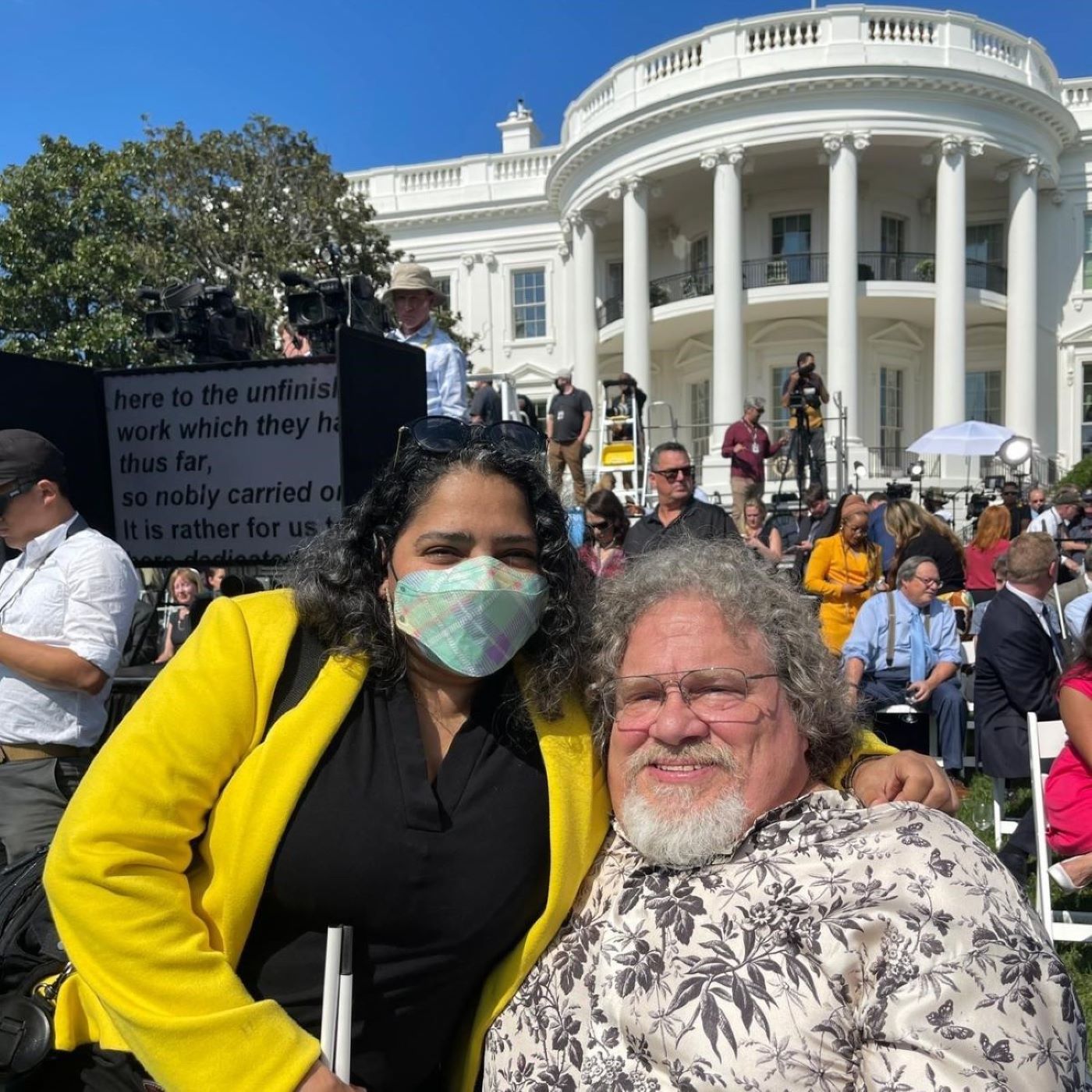

We’re marking National Disability Employment Awareness Month with a conversation with James LeBrecht https://www.arts.gov/impact/accessibility/careers-in-the-arts-toolkit/artist-profiles/james-jim-lebrecht and Day Al-Mohamed https://www.dayalmohamed.com/—two founding members of FWD-Doc https://www.fwd-doc.org/-- a global, intersectional community of disabled creators and allies working in media to build a more inclusive, accessible, and equitable entertainment industry that cultivates and champions disabled media-makers, and elevates stories by, for, and about people with disabilities. James LeBrecht Is a film and theater sound designer and mixer, author, disability rights activist, and filmmaker who with Nicole Newnham produced and directed -the story of Camp Jened which ignited a community of people with disabilities to fight for their rights. Day Al-Mohamed is an author, filmmaker, disability policy strategist, and a member of the Coast Guard Auxiliary. , a documentary about disabled veterans' contributions during the Civil War, was her first documentary as a blind filmmaker. In this podcast, Jim and Day detail the mission of FWD-Doc and the issues that it is addressing: the lack of access and opportunity for people with disabilities in filmmaking, and the dearth of stories by and for people with disabilities. They discuss the many resources they offer on their website including their robust “Toolkit for Inclusion & Accessibility: Changing the Narrative of Disability in Documentary Film,” and their partnership with the International Documentary Association to establish the Nonfiction Access Initiative (NAI), a fund for nonfiction storytellers and media makers from the disability community. Al-Mohamed and LeBrecht also talk about their career trajectories, the difference between compliance and best practices, and the need for access to be recognized as essential to diversity.


In this podcast, actors Sylvia Kwan https://www.sylviakwan.com/ and Jacob Yeh https://jacob-yeh.com/ discuss their many roles in Lauren Yee's https://laurenyee.com/ play a semi-autobiographical comedy about community, culture and the connection between fathers and daughters—now playing at Arlington, Virginia’s Signature Theatre https://www.sigtheatre.org/. It is funny and wildly imaginative— with Act II centered on a fabulous quest through San Fransisco's Chinatown. Kwan and Yeh discuss the challenges and fun in playing multiple characters in the play, the intricacies of comedic timing, and physical comedy while ensuring authentic portrayals of the characters as well as the meta aspects of the play and continual breaking of the fourth wall. The actors talk about working in a play that puts Asian-American stories front and center with a creative team that was largely Asian-American. They discuss the play's physical demands: rapid pacing, choreography, puppetry, and quick changes and their strategies to maintain their stamina as well as their individual journeys to acting. We’d love to know your thoughts--email us at artworkspod@arts.gov.


We close out Hispanic Heritage Month with Manuel Delgado—a luthier who carries on a multi-generational family legacy of hand-crafting string instruments—a history that goes back to 1928. In this podcast, Delgado talks about his family’s tradition of instrument-making and working closely as a boy with his father and grandfather in their shop in East LA. He discusses the craftsmanship that goes into the making the instruments in the Delgado Style with an emphasis on "old-world luthier" techniques, a marriage of art and science. Delgado also talks about his move to Nashville after his father’s passing and opening his own shop Delgado Guitars https://delgadoguitars.com/—bringing the same fine craftsmanship and personal touch to Nashville. He also discusses his advocacy for arts education--especially his support for music educators, stressing the scientific evidence of music's impact on the brain and its benefits in other academic areas. He talks about his involvement in Music Makes Us where he created a mariachi program for kids at risk, the Music City Mariachi Festival that he was instrumental in creating, and Music Makers Stage—a venue he created for the community and for artists. Finally, he talks about passing the tradition down to his daughters and the emotional connection he still feels for his father and grandfather as he crafts an instrument. We’d love to know your thoughts--email us at artworkspod@arts.gov.
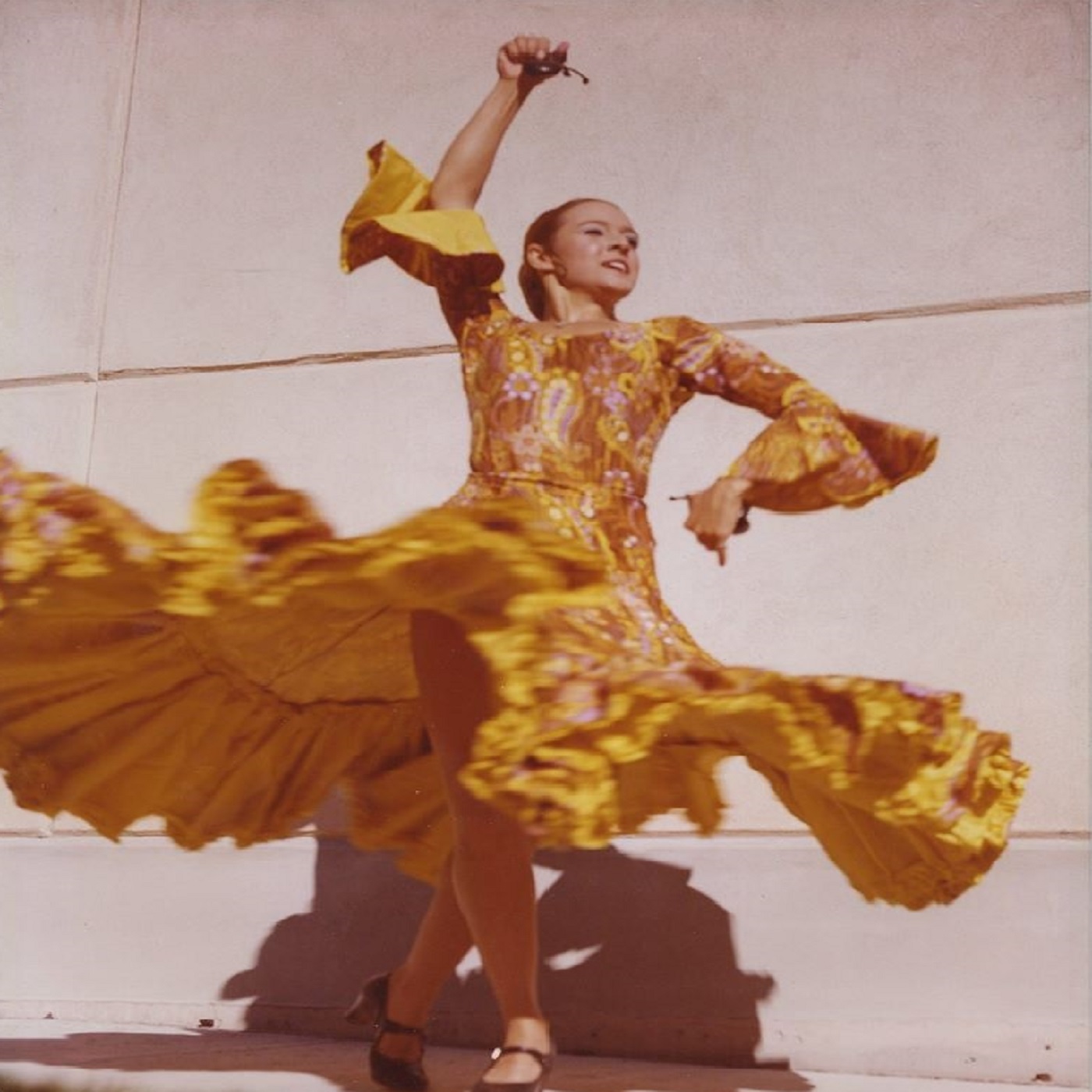

Flamenco Artist and 2022 National Heritage Fellow Eva Enciñias https://www.arts.gov/honors/heritage/eva-encinias has transformed and broadened the performance and study of flamenco in the United States generally and in her hometown of Albuquerque, N.M. particularly.In this podcast, Eva Enciñias talks about the artistry and history of flamenco and her family’s roots in this art form; her dual loves: flamenco and teaching, her 43 year-long career as a teacher in the dance department at the University of New Mexico where she created a concentration in flamenco in the undergraduate and graduate levels— the only accredited dance program of its kind internationally. We also discuss the institute she founded The National Institute of Flamenco https://www.nifnm.org/f which houses many programs and events including the Flamenco Festival Alburquerque https://www.nifnm.org/festival-flamenco-1 (they went back to the original spelling) which has just celebrated its 35th anniversary and is one of the premier flamenco festivals in the world, and her on-going work weaving flamenco in the fabric of her community.
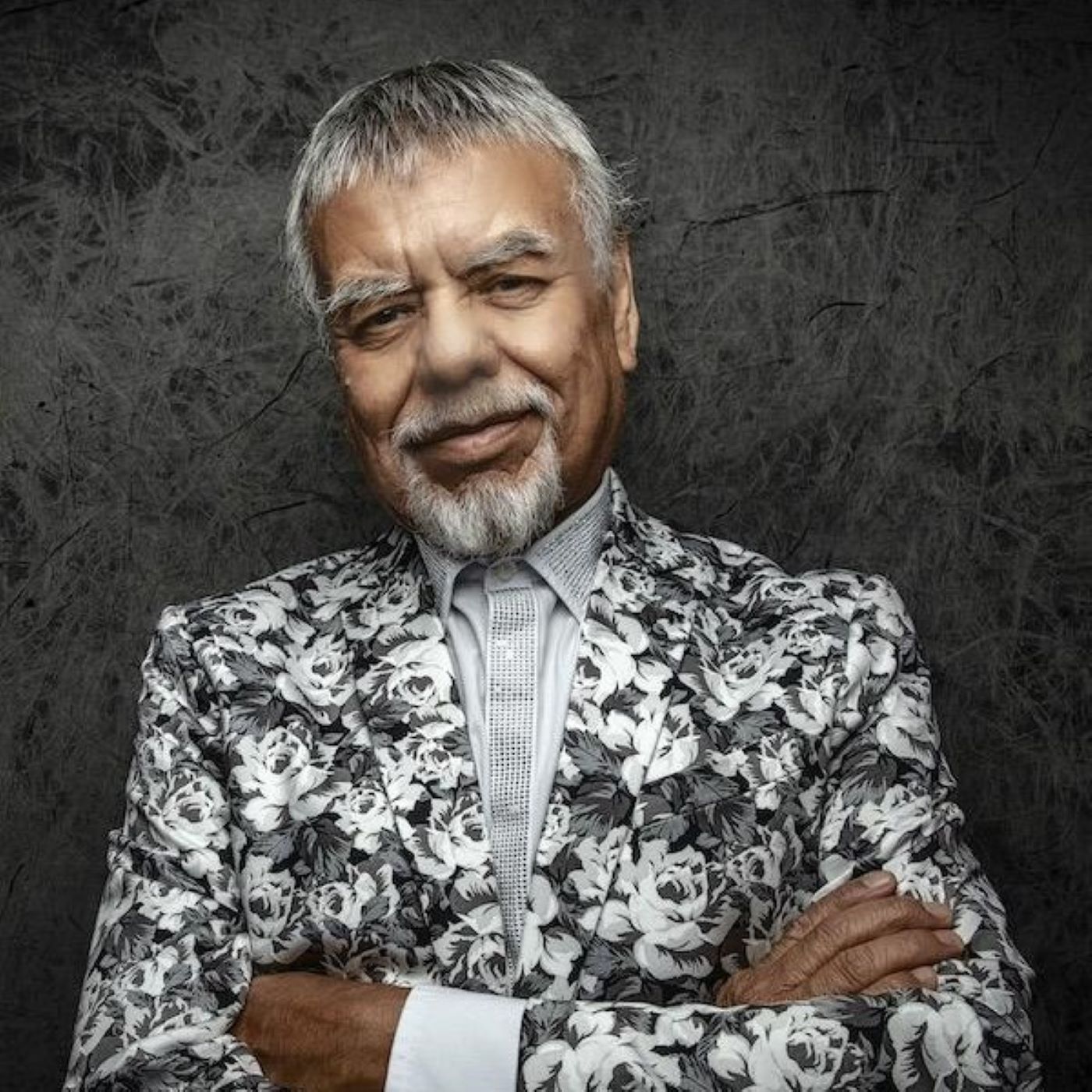

In this podcast, 2023 National Heritage Fellow “Little Joe” Hernández describes his musical journey, explaining how his culture, family, and personal experiences shaped his legendary style. Coming from a musical family, he took the traditional Mexican songs he grew up hearing and blended them with jazz, country, rock 'n roll, and blues to create a distinctive voice in Tejano music. He discusses his transition from a shy boy to the front Hispanic Hisman of Little Joe and the Latinaires—later Little Joe and La Familia—as well as his time in California and the explosion of Latin jazz, the great significance of the Chicano Movement on his music, his concerts for the United Farm Workers Union, and his return to Temple, Texas, to raise his family. He sheds light on the band's compositions and collaborations, indicating how they honed their distinctive sound over time. Hernández also discusses the profound emotional connection music can forge, allowing artists and audiences to bond over shared feelings and experiences, his collaborations with Willie Nelson for Farm Aid, his five Grammy Awards, his longevity in the music business, and the way the music preserves, expands, and celebrates Chicano culture.
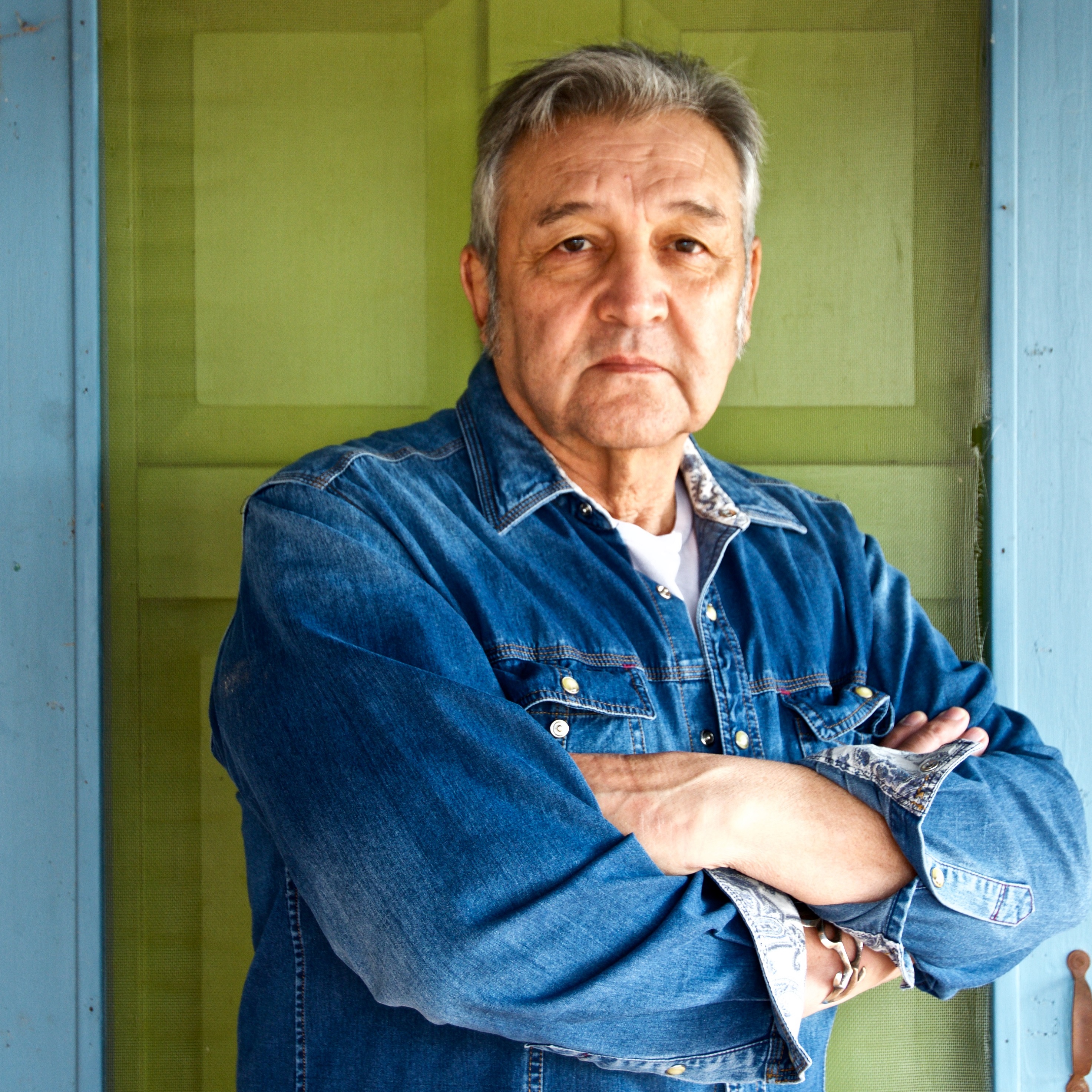

Sculptor and 2023 National Heritage Fellow Luis Tapia https://www.arts.gov/honors/heritage/luis-tapia has helped to revitalize and transform the art of the (a person who makes religious imagery), a Hispanic tradition practiced in New Mexico and southern Colorado that goes back over 400 years. In this podcast, Tapia discusses his artistic journey. He began by reproducing traditional (carved and painted statues of saints). But the Chicano movement, which revolved around farm workers' rights, was significant in his artistic development. He became curious about his cultural and historical identity and the result of that curiosity became apparent in his art. He began incorporating bright colors and modern figures into his work, which continued the forms and styles of traditional religious iconography while reflecting contemporary issues. He placed his “saints” among us-- as immigrants crossing a border, a man in jail, a grandmother protecting her grandchild. His blending of tradition with the contemporary, the sacred with the quotidian, was, at the time, controversial but now has been adopted by other Tapia also talks about his approach to sculpting which ensures his pieces are viewed from all angles, allowing them to reveal complex stories from multiple perspectives. He describes his process as a dialogue between himself and the wood, starting with a concept and asking questions as he carves until the piece evolves. He also discusses the diverse range of art he creates: from religious icons to vibrant pieces inspired by pop culture, like his sculptures inspired by lowriders which have great cultural significance in New Mexico. Tapia finally emphasizes the paramount importance of cultural memory, observation, and storytelling that resonate through every piece he creates. Let us know what you think about —email us at artworkspod@arts.gov.


It’s a two-part podcast looking at one topic: exploring ways arts are being encouraged in communities. First up, philanthropist Adrienne Arsht. https://www.arshtcenter.org/about-us/benefactor/ Arsht discusses her long-term support for the arts-- at The Kennedy Center https://www.kennedy-center.org/digitalstage/adrienne-arsht-presents/, at Lincoln Center, https://www.lincolncenter.org/venue/alice-tully-hall at the Metropolitan Museum of Art https://www.metmuseum.org/about-the-met/internships/undergraduate-and-graduate-students/fall-and-spring, and reflecting upon her decision to make a sizable donation to sustain the performing arts center in Miami ---now the Adrienne Arsht Center for the Performing Arts in Miami-Dade County https://www.arshtcenter.org/ which had been about close. Arsht also discusses the importance of having a performing arts center in every great city and highlights how Miami's diverse community was reflected in the center's programming from the beginning. Arsht also discusses her commitment to arts education through the flagship program "Learning Through the Arts" at the Adrian Arsht Center and her ground-breaking funding of paid internships at both the Metropolitan Museum of Art and the Adrienne Arsht Center, emphasizing the importance of breaking down barriers that prevent talented individuals from pursuing internships and the positive impact of these programs. Then we hear from Debbie Shapiro the artistic director of the Marie Rader Presenting Series at Rowan University https://cpa.rowan.edu/boxoffice/marie-rader-presenting-series/. The series brings award-winning and emerging artists to South Jersey, emphasizing transformative engagement that goes beyond performances which includes direct interactions between world-class artists and students, as well as partnerships with community organizations in the region. Shapiro discusses the series and its curation which is unique in that it's integrated within the College of Performing Arts at Rowan University, allowing for close collaboration with faculty and a focus on aligning the artist selections with the educational offerings of the university. The programming reflects the diversity of the audience which comprises community members, Rowan students, university employees, faculty from various area colleges, and families of the students.
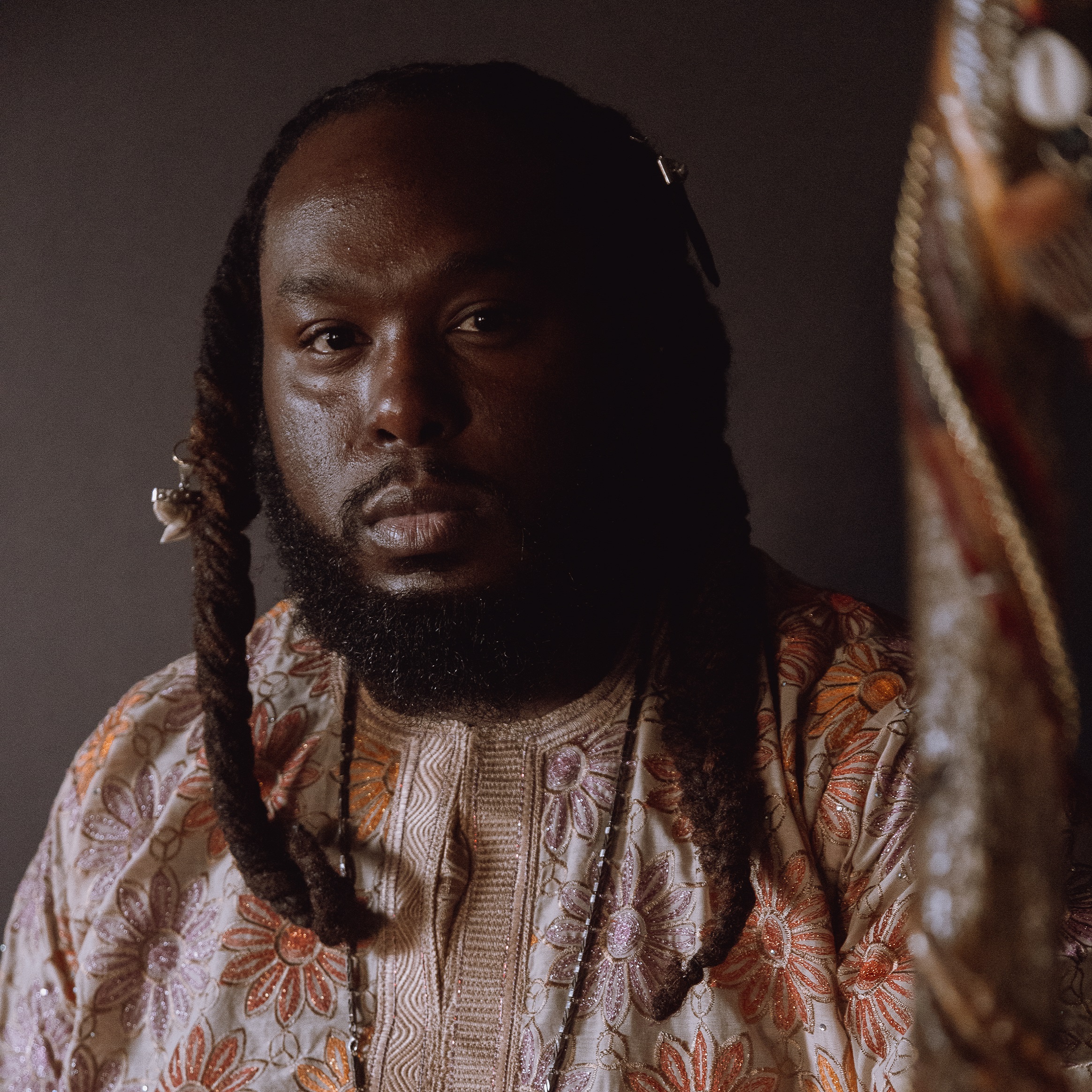

A conversation with Dr. David Fakunle who uses the art of storytelling to promote public health by listening, understanding, and addressing the personal, social, and structural factors that contribute to health disparities. He powerfully combines science with art and is transforming discussions about the role of storytelling in healing. Dr. Fakunle shares his personal story of growing up in a family deeply rooted in the arts, especially music and storytelling. His childhood was marked by significant cultural influences, such as his experiences at the Great Blacks in Wax Museum in Baltimore https://www.greatblacksinwax.org/ and his memorable encounter with renowned griot, Mary Carter Smith https://msa.maryland.gov/msa/educ/exhibits/womenshallfame/html/smith.html who with 2019 National Heritage Fellow Linda Goss https://www.arts.gov/stories/podcast/linda-goss co-founded the Association of Black Storytellers https://www.nabsinc.org/. Dr. Fakunle took these influences to the Johns Hopkins Bloomberg School of Public Health https://publichealth.jhu.edu/ where he realized the deeper implications about the potential of storytelling in the realm of public health. Fakunle's innovative ideas were supported by the faculty, and upon graduation, he began teaching storytelling in the Mental Health Department at Hopkins, emphasizing the importance of effectively communicating scientific research through engaging narratives. Fakunle argues that the profound benefits of storytelling in health communication come from its ability to resonate with audiences but more importantly, authentic narratives and voices need to be central in discussions about health challenges Dr. Fakunle also discusses his many years of work at WombWork Productions https://www.wombwork.com/home (where he is now executive director). WombWork is a social change performing arts company. Under his leadership, the company shifted its focus from implicit to explicit public health impact, tackling a range of serious topics such as HIV, gang violence, and child sexual abuse through art. Dr. Fakunle’s passionate belief that the creative process serves as a crucial part of the healing process is the thread that moves through all his work.
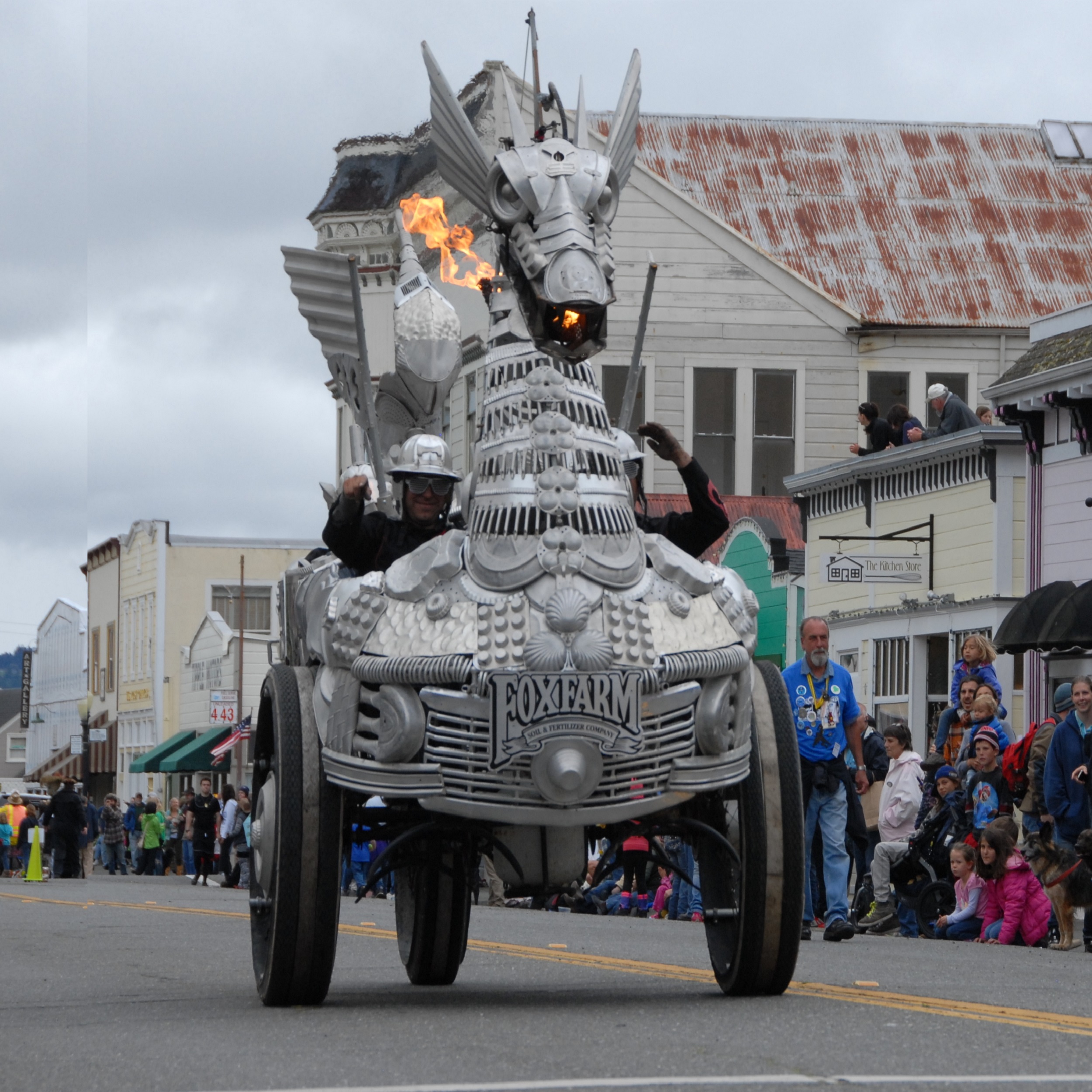

We are revisiting one of my favorite interviews—a 2013 conversation with Kati Texas about the Kinetic Sculpture Race. https://kineticgrandchampionship.com/ The Kinetic Grand Champion Race is a one-of-a-kind, multi-day event that combines engineering, art, athleticism, and a strong sense of fun. It involves teams competing with human-powered, artistically-themed contraptions that are engineered to race over land, mud, sand, and water terrains. Originating in 1969, this quirky competition has grown to become a significant and anticipated event in Humboldt County, California, where the Kinetic Grand Championship is held each year. As you will hear, one of the standout features of this event is its joyful and humorous atmosphere. Spectators line the streets to cheer on their favorite racers, and participants often dress in elaborate costumes, aligning with the theme of their sculpture. Furthermore, the race is characterized by unique and whimsical award categories, such as the "Golden Flipper" for sculptures that tip over or the "Poor, Pitiful Me" award for the racer perceived to whine or complain the most. And Kati herself is a Rutabaga Queen (a highly coveted title!) It's hard to imagine a better guide for a behind-the-scenes look at this human-powered art race than Katie Texas. Aside from being a veteran racer herself, Katie has served the Kinetic Universe as president of its board of directors. The Kinetic Sculpture Race is not only a celebration of art and engineering but also of community spirit and the joy of taking on challenges with creativity and a smile. As you’ll hear in this podcast, participants and spectators alike are united in their love for this eccentric, innovative, and delightful event.


In this visit to our archives, we dive deep into the mind of the legendary late Stan Lee, the maestro behind Marvel Comics' most iconic characters. From the origins of Spider-Man's creation, inspired by a simple insect on a wall, to the inception of the Fantastic Four, Stan Lee recounts his journey of transforming the world of comics. He delves into the realism he injected into his characters, from Peter Parker's New York residence to the X-Men's mutant origins. While discussing his desire for characters to be relatable, Lee highlights the importance of infusing everyday, human elements into the grandeur of superhero tales. Whether you're a Marvel aficionado or just a casual fan, this episode offers a unique glimpse into the creative process of one of the most influential figures in the comic book industry. The origin stories of our favorite characters are more grounded than one might think. The iconic Spider-Man, for instance, was born from Lee's observation of a mere spider scaling a wall. It made him wonder: what if a human had the abilities of a spider? Such simple, yet profound musings led to the birth of Peter Parker, a character whose human struggles resonated as much as his superhuman feats. But the revelations don't stop there. The Fantastic Four, Marvel's first superhero team, weren't just an assemblage of abilities but a reflection of family dynamics, friendship, and human resilience. Lee's brilliance lay not just in creating superheroes but in giving them depth, layers, and a touch of realism. He shares his thought process behind anchoring his characters in real-world cities, like Peter Parker's residence in New York, a tangible place that readers could identify with. In this episode, the late Stan Lee underscores a philosophy that became the hallmark of Marvel Comics: the marriage of the ordinary and the extraordinary. It wasn't just about capes, superpowers, or intergalactic wars. It was about heart, emotion, and the very human journey of self-discovery.
